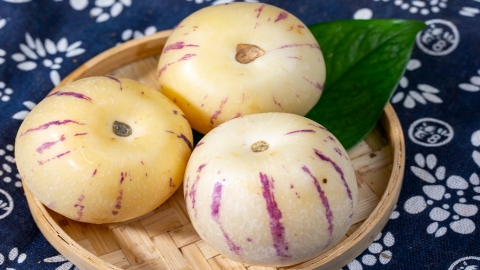What is incompatible with ginseng fruit?
Generally speaking, sweet fruit (Solanum muricatum) has incompatibilities with yogurt, persimmon, milk, glutinous rice, durian, etc. The specific analysis is as follows:

1. Yogurt
When the lactic acid bacteria in yogurt encounter fruit acids from sweet fruit, it may reduce the activity of the lactic acid bacteria, affecting the nutritional value of the yogurt. Additionally, the combination of fruit acids and lactic acid bacteria might irritate the gastric mucosa.
2. Persimmon
Both sweet fruit and persimmon contain significant amounts of tannic acid. When these two foods are consumed together, tannic acid may form indigestible precipitates in the stomach, leading to gastrointestinal discomfort and potentially causing gastric stone formation.
3. Milk
Sweet fruit contains a high level of fruit acids, while milk is rich in protein. If consumed together, the fruit acids may cause the proteins in milk to coagulate, not only affecting the taste but also potentially reducing the nutritional value of the protein.
4. Glutinous Rice
Glutinous rice is a difficult-to-digest food; when consumed together with sweet fruit, it may weaken the digestive function of the gastrointestinal tract. Individuals with weaker gastrointestinal function are particularly prone to experience symptoms such as indigestion.
5. Durian
Durian is a heat-inducing food, while sweet fruit is warm in nature and has functions such as promoting body fluid production, improving blood circulation, and nourishing the kidneys. When consumed together with sweet fruit, it may lead to excessive internal heat, causing symptoms of excessive "fire" in the body.
Although sweet fruit is incompatible with the above-mentioned foods, in daily diets, maintaining proper portion control and reasonable food pairing usually does not result in serious health problems.








